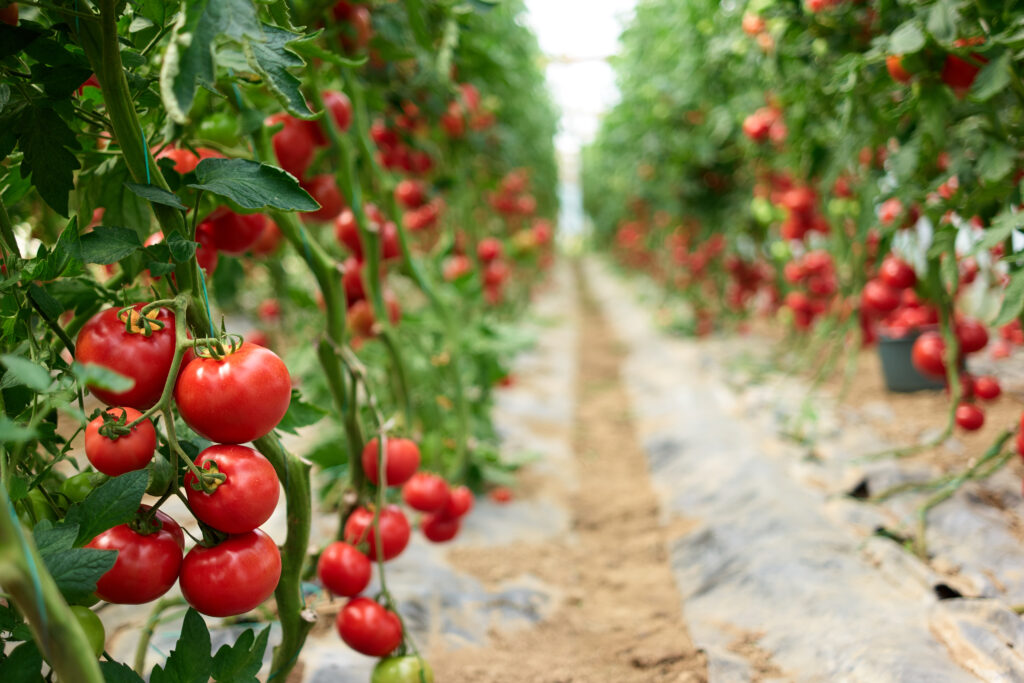Summary of Biostimulant – Biochelate for Tomatoes as an eco-friendly alternative to synthetic chelate for micronutrients supply under alkaline conditions: A multi-omics approach
An Eco-Friendly Micronutrient Solution
Biostimulant – Biochelate for Tomatoes offers a greener and more sustainable approach to crop nutrition. This solution not only improves nutrient uptake but also strengthens plant resilience under alkaline conditions.
Soil alkalinity, often linked to prolonged drought, has become an increasing challenge for farmers around the world. When alkalinity rises, essential micronutrients become less available to plants. As a result, yields drop, and crop quality declines.
To counter this problem, many growers have traditionally relied on synthetic chelate-based fertilizers. While these products can be effective in supplying micronutrients, they come with significant drawbacks. They tend to persist in the environment, accumulate in plant tissues, and mobilize heavy metals in the soil-plant system. Consequently, there is growing interest in safer, eco-friendly alternatives.
Biostimulant – Biochelate for Tomatoes: Sustainable Micronutrient Delivery in Alkaline Soils
Addressing this need, biochelate-based fertilizers—derived from vegetal peptides—offer a natural substitute for synthetic chelates such as EDTA. Unlike their synthetic counterparts, these bio-based solutions reduce environmental risks while still providing essential nutrients.
In a recent comparative study, tomato plants grown in alkaline soil received either a biochelate or a synthetic chelate at three application rates. To assess the effects accurately, researchers monitored plant growth using a 3D laser scanner, tracking biomass, leaf area, and vegetation indices throughout the growing cycle.
Results showed that overall biomass remained similar between treatments. However, plants receiving lower fertilizer doses developed visible leaf chlorosis, signaling nutrient stress. This finding highlights the importance of both fertilizer type and application rate in maintaining plant health.
Biostimulant – Biochelate for Tomatoes: Enhancing Plant Health and Stress Tolerance
Beyond visible growth parameters, detailed leaf mineral analysis revealed notable differences. Synthetic chelates maintained higher zinc and copper levels at high application rates. In contrast, biochelates consistently boosted manganese and boron concentrations at all rates, showing their efficiency across a wider range of conditions.
Moreover, metabolomic profiling uncovered an additional benefit of biochelates. They stimulated the production of phenolic compounds, which enhance antioxidant defenses and improve plants’ ability to cope with stress. This biochemical advantage contributes to healthier, more resilient crops.
A Greener Future for Tomato Cultivation
Overall, these results emphasize the potential of biostimulant biochelate tomato nutrient alkaline soil solutions as a viable alternative to synthetic chelates. They supply essential micronutrients without the associated environmental risks, while also activating natural defense mechanisms in plants.
By improving nutrient efficiency and supporting plant health under challenging soil conditions, biochelates align perfectly with sustainable agriculture goals. Their use can help ensure consistent tomato yields, protect soil health, and promote long-term environmental stewardship.
Publication: Scientia Horticulturae









